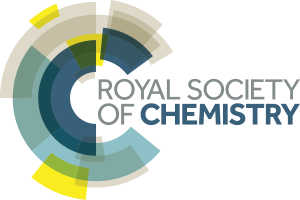 A pair of researchers at the Indian Institute of Technology (Indian School of Mines) has had a total of nine more papers retracted, pushing their totals to 24 and 26, respectively.
A pair of researchers at the Indian Institute of Technology (Indian School of Mines) has had a total of nine more papers retracted, pushing their totals to 24 and 26, respectively.
The totals put the two researchers — Rashmi Madhuri, with 24 retractions, and Prashant Sharma, with 26 — on our leaderboard of the 30 authors with the most retractions in the world.
Three of the retractions appeared in RSC Advances, two appeared in Journal of Materials Chemistry B, and one each appeared in Journal of Materials Chemistry A, Journal of Materials Chemistry C, Biomaterials Science, and CrystEngComm.
For example, here is the retraction notice from Journal of Materials Chemistry C:
The Royal Society of Chemistry hereby wholly retracts this Journal of Materials Chemistry C article due to concerns with the reliability of the data in the published article.
The TEM images in Fig. 1F and 2C contain duplications of the same particles within the images.
The FTIR spectra presented in Fig. 2B have been duplicated but it has been reported as different materials.
Fig. 7 contains duplicated images in different orientations.
The zeta potential plot data in Fig. S4 duplicates data that has been presented in other publications but reported as different materials.1–3
Given the number and significance of the concerns, the validity of the data and, therefore, the conclusions presented in this paper are no longer reliable.
The Royal Society of Chemistry apologises for the fact that these concerns were not identified during the peer review process.
Santanu Patra, Rashmi Madhuri and Prashant K. Sharma oppose the retraction. Raksha Choudhary and Ekta Roy were contacted but did not respond.
Signed: Sam Keltie, Executive Editor, Journal of Materials Chemistry C.
Date: 23rd November 2018.
The story of Madhuri and Sharma’s retractions began almost exactly a year ago, when PubPeer commenters noted obvious duplications in the pair’s work. The numbers have grown since.
The Royal Society of Chemistry, which publishes the journals that retracted the nine papers, tells Retraction Watch:
The decision to retract is opposed by the authors, all of whom were contacted during the investigation process.
Our investigations concluded that in nine papers it was apparent that the data and conclusions could no longer be relied upon due to inappropriate altering of images and duplication of data, which have been presented in a number of journals, including with other publishers.
While we have apologised to our readers for the fact that these concerns were not identified during the peer review process, our author guidelines make it clear that researchers are expected to uphold standards of academic integrity.
Like Retraction Watch? You can make a tax-deductible contribution to support our growth, follow us on Twitter, like us on Facebook, add us to your RSS reader, sign up for an email every time there’s a new post (look for the “follow” button at the lower right part of your screen), or subscribe to our daily digest. If you find a retraction that’s not in our database, you can let us know here. For comments or feedback, email us at [email protected].